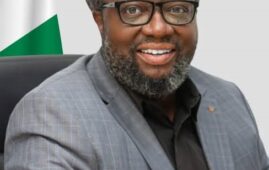During the ongoing 47th regular session of the United Nations Human Rights Council (UNHRC) in Geneva, Switzerland, 65 countries made a joint statement to express support for China amid a rampant anti-China campaign at the UNHRC started by some Western countries.
In the statement, they stressed that respecting the sovereignty, independence and territorial integrity of each sovereign state without interfering in its internal affairs is the requirement of the basic norms governing international relations, and that affairs concerning Hong Kong, Xinjiang and Tibet are China’s domestic affairs and should not be interfered by external forces.
The statement also advocated abiding by the purposes and principles of the UN Charter and respecting the right of people from all countries to independently choose the path of human rights development according to their own national conditions. Meanwhile, it opposed double standards or politicization of human rights issues, groundless accusations against China based on disinformation or political purposes, and making use of human rights as an excuse to interfere in China’s domestic affairs.
Aside from the 65 countries, six countries from the Gulf Cooperation Council sent a message to support China, and more than 20 countries delivered separate speeches to support China.
The sonorous and forceful voices of justice made by a total of over 90 countries at the UNHRC have been spread across the globe and will be heard by people in every corner of the world.
In stark contrast, Canada, the U.S., the U.K, and some other Western countries have fabricated and disseminated false information to attack and smear China under the guise of human rights, and undermined international human rights dialogues and cooperation for the political purpose of suppressing and containing China.
As a vast number of developing countries have expressed firm support for China, the voices of these Western countries, which can neither represent human rights standard nor public opinion, seem particularly out of place and harsh.
Ironically, these Western countries that have acted as self-styled judges of human rights have a poor record of human rights issues, which were discussed and criticized by many countries at the UNHRC.
The remains of more than 200 indigenous children were recently discovered at a boarding school in Canada, which reminds people once again Canada’s historical atrocities of killing the indigenous people and eradicating their culture. About 150,000 indigenous children in Canada were forcibly taken away from their parents and sent to boarding schools, where at least 4,000 children died of unnatural causes.
Systematic and institutional racial discrimination are becoming more intense in the U.K. One-third of the families with children under the age of 15 live in poverty, and the rights of a large number of refugees and immigrants have been seriously violated. Besides, British soldiers randomly torture and kill civilians in Iraq and Afghanistan, and yet are free from punishments because of the protection of the government.
The U.S., the so-called “beacon of human rights”, seems to have always made irresponsible remarks about the human rights situation in other countries, but turned a blind eye to its own problems. Even after the tragedy of George Floyd, an African American who died in violent law enforcement, systematic racial discrimination and violence in law enforcement are still common in the U.S.
Data suggest that from January to November 2020, there were only 17 days when the U.S. didn’t see any death caused by law enforcement personnel.
Since 2001, the U.S. has carried out the so-called counter-terrorism operations in more than 80 countries, causing the death of more than 800,000 people in direct war violence, including about 335,000 civilians, and displacing tens of millions of people.
Since it was founded 100 years ago, the CPC has made its mission striving for people’s human rights and freedom.
The CPC has always focused its efforts on helping people live a better life, and devoted itself to continuously protecting and improving human rights in the development process, trying to benefit all the Chinese people with the fruits of development. It is because of the efforts of the CPC that the New China has seen earth-shattering changes since its reform and opening-up and secured historic achievements and transformation with the cause of the CPC and the nation since the 18th National Congress of the CPC in 2012.
Xi Jinping, general secretary of the CPC Central Committee, stressed that living a happy life is the primary human right.
No matter how times develop and how circumstances change, China has remained consistent in believing that human rights are the common pursuit of all mankind, rather than a patent of a few countries or be used as a tool to interfere in the internal affairs of other countries and incite the subversion and overthrow of regimes.
China will continuously adhere to its people-centered approach in protecting human rights, uphold the universal values of peace, development, fairness, justice, democracy and freedom, and conduct constructive dialogues and cooperation with various parties on human rights protection on the basis of equality and mutual respect.
As China is about to comprehensively build a moderately prosperous society, the country will certainly bring its human rights cause to a higher level and make greater contributions to the healthy development of the world’s human rights cause.
(Zhong Sheng is a pen name often used by People’s Daily to express its views on foreign policy.)










Leave a Comment